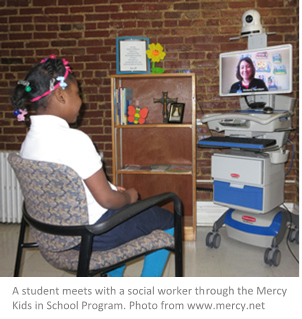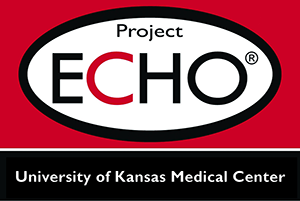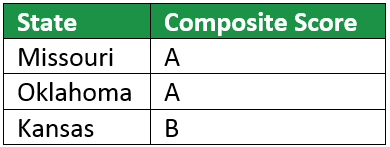|
TELEHEALTH BEAT
HTRC's monthly telehealth bulletin
|
|
Heartland Telehealth Resource Center is here to meet your telehealth needs. We are a government-sponsored organization serving Kansas, Missouri and Oklahoma, with a wide range of services, and many of them are free. Email us at questions@HeartlandTRC.org or call us at 877-643-HTRC.
|
Over the past couple years, Missouri has made big strides toward embracing the benefits of telehealth. Legislators have passed
bipartisan bills in support of expanding telehealth access, and Missouri became one of the first states to
receive state funding for Project ECHO. However, up until recently, schools have struggled to fully implement telemedicine due to restrictions in how telehealth is defined in the state.

Thanks to policy champions and new legislation, that is about to change.
Missouri Representative Kip Kendrick has been a long-time advocate for telehealth. He has been leading the charge towards telehealth adoption in Missouri
schools for the last
several years. This year, Kendrick worked with fellow legislators to incorporate his school telehealth language into
SB 579
, which passed with bipartisan support.
While schools in Missouri were already able to use telehealth, they could not receive reimbursement for the services. This meant that telehealth was rarely a viable option for budget-strapped school systems.
Under the new bill, schools will be considered a telehealth origin site by MO HealthNet, Missouri's Medicaid administrator. This will enable schools to receive reimbursement for their telehealth services.
In an interview with the HTRC, Kendrick spoke about why this legislation is important for helping Missouri keep up with advancements in technology.
"As we were digging into the statutes and rules and regulations regarding telehealth it was clear that the technology was far outpacing the statutes," said Kendrick. "We needed to overhaul the statute in order to bring it closer to where the technology is, and I believe that we have accomplished that this year."
|
Topeka, Kansas
August 19
KanTel is a newly formed advisory board which serves as a resource for government agencies, and advocates for telehealth legislation in Kansas. If you a
re interested in participating in Kantel, please email Janine Gracy at
JGracy@KUMC.edu
.
TAO Telementoring Network
Oklahoma City, Oklahoma
August 26

Are you an allied health professional in Oklahoma who is interested in incorporating telehealth into your practice? Join the Telehealth Alliance of Oklahoma's (TAO) new telementoring network for allied health professionals. TAO will pair you with an experienced telehealth practitioner in your field. Orientation for those interested in mentoring will begin August 26. This is a volunteer group, so there is no charge for participating. The focus will be on speech language pathologists and dietitians first, but stay tuned because more allied health specialties will be joining the telementoring network soon. Lunch will be provided.
Please RSVP at
tao.okla@gmail.com by August 24.
New Orleans, Louisiana
September 28-30
The ATA Fall Forum is in New Orleans this year. Come hear Walmart and other industry players lead focused discussions on technologies, trends, and industry challenges for 2016 and beyond. The forum is a great opportunity to enjoy New Orleans while networking and hearing the latest, industry advancements in a thought-provoking and intimate environment.
|
The
Kansas Project ECHO
,
led by
the University of Kansas Medical Center
, will soon expand their ECHO offerings to include asthma and chronic pain. Project ECHO is a case-
 based model that uses videoconferencing to connect primary care providers (PCP) to teams of specialists so PCPs can improve their "specialty skills" for a particular chronic condition.
based model that uses videoconferencing to connect primary care providers (PCP) to teams of specialists so PCPs can improve their "specialty skills" for a particular chronic condition.
Chronic pain is the number one reason Kansans seek medical care. It affects more people than diabetes, heart disease, and cancer combined. Despite being such a common condition, chronic pain is rather complex to treat. Chronic pain is often treated with opioid prescriptions, but they have limited long-term benefits. Properly treating chronic pain requires identifying the root cause of the pain, and that is where Project ECHO can help. By working with an interdisciplinary pain management specialist team, participants will be able to consider all possible options for treating their chronic pain patients.
Asthma is another chronic condition with a major impact on the state with about 1 in 12 people in Kansas currently suffering from asthma. Although common, asthma can be difficult to manage. Providers don't always prescribe the most appropriate medications, and lifestyle and environmental complications can make it challenging for patients to adhere to their treatment plan. Project ECHO helps by allowing rural providers to learn the best practices for asthma care and review their cases with an asthma specialist team.
The asthma and chronic pain ECHO's will begin this fall. To register or receive more information, email Carla Deckert at
ProjectECHO@kumc.edu.
|
We have previously covered the success stories of Project ECHO in
Missouri and
Kansas. Now, recent research has demonstrated Project ECHO to be effective for reducing Hepatitis C virus (HCV) rates among the Cherokee Nation population in Oklahoma.
HCV is a silent but deadly disease and the majority of Americans with HCV are not aware
 that they have the disease. This can lead to chronic HCV, often resulting in serious health complications. The Native American population has a significantly higher rate of HCV compared to the general population.
In an effort to improve the screening and treatment of HCV among the Cherokee Nation, the
Cherokee Nation Health Service (CNHS) began implementing several different preventive measures. One of the main strategies used was Project ECHO, which allowed HCV specialists to train CNHS providers on how to screen and treat the disease. By using Project ECHO, the CNHS was able to expand from one clinic with a single qualified provider to five clinics staffed by seven health care providers trained on diagnosing and treating HCV.
|
|

Each state was assigned a letter grade from A-F signifying their level of support based on
three factors: Psychologist-patient encounters, Informed consent, and licensure and out-of-state practice policies.
The states were assigned a score for each criterion, and then a composite score based on their individual item scores. Just eight states received a final composite score of an "A" on the report, two of which were
Missouri and Oklahoma. An "A" Score suggests a supportive policy landscape that is conducive to the
adoption of telemental health services. Forty-one states received a "B" grade, including Kansas.
- Psychologist-patient encounters were calculated based on state policies that "permit or obstruct the professional use of telehealth before, during, or after the psychologist-patient encounter."
- The informed consent criteria focused on how informed consent differed between telemental health and in-person visits.
- Licensure and out-of-state practice scores took into account reciprocity agreements, Certification of Professional Qualification (CPQ), and full, unrestricted licenses.
|
|
You've likely heard of
Pokemon GO by now. The gaming phenomenon quickly rose to the top of the mobile game charts last month. One thing you may be unaware of is that the game is one of the first mainstream products to utilize augmented reality (AR). This same technology, along with virtual reality (VR), is poised to transform the healthcare industry as we know it.
What is Virtual Reality and Augmented Reality?
The idea behind VR and AR is that they allow the user to experience and interact with an environment that differs from reality. AR focuses on combining virtual components with the real-world (i.e. catching Pokémon in the real world), whereas VR transports the user into a completely digital, 3D environment. The possibilities of the technology are endless, but whether it involves transporting you to the
Olympics,
under the ocean, or
into the eyes of a surgeon, the goal of VR is to fully immerse the user in a virtual experience. Both AR and VR typically involve the use of a headset and a combination of sensors and other hardware - usually a phone or computer. The technology is well suited for entertainment purposes, but is also going to disrupt several other industries, including healthcare.
VR's growth in Health Care
The healthcare industry has long recognized the potential of virtual reality. In the early 90s, doctors were already exploring the technology for
surgical simulators, rehabilitation and medical database visualization. VR never really took off at the time due to its high cost and low quality. However, recent advances in technology have significantly reduced these barriers, allowing for high quality VR experiences to be achieved at a reasonable price.
The research and consulting firm
IndustryARC, predicts that AR and VR in healthcare will generate over $2.5 billion by 2020. Most existing uses of VR in healthcare fall into the categories of simulations, clinical care, and the outpatient/consumer market.
|
 |
Project ECHO Award
Mirna Becevic, PhD, MHA, Assistant Research Professor, Department of Dermatology and the Missouri Telehealth Network were recently honored at the 14th International Conference on Informatics, Management and Technology in Healthcare (ICIMTH), held in Athens, Greece.
Her essay titled: "Show-Me ECHO: Complex Disease Care Capacity-Building Telehealth Program" won the best paper award.
|
|
|
Heartland Telehealth Resource Center | questions@HeartlandTRC.org |
4330 Shawnee Mission Parkway Fairway, KS 66205
|
|
|
|
|